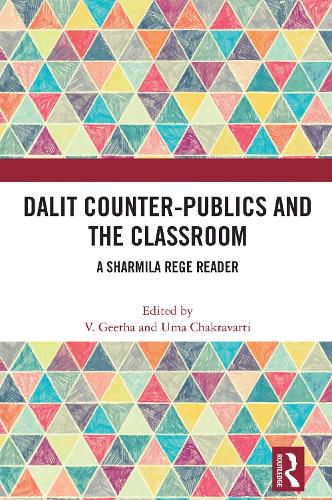Readings Newsletter
Become a Readings Member to make your shopping experience even easier.
Sign in or sign up for free!
You’re not far away from qualifying for FREE standard shipping within Australia
You’ve qualified for FREE standard shipping within Australia
The cart is loading…






This book is an anthology of the collected essays of Sharmila Rege (1964 - 2013) that addresses themes to do with pedagogy and culture. Rege makes a compelling argument for rethinking the content of sociological knowledge and invokes in this context, Anticaste radical philosophies, associated with Mahatma Phule and Babasaheb Ambedkar as well as the writings of Dalit women. Equally, she seeks to rethink and engender the domain of Cultural Studies. She calls attention to 'Dalit counter-publics', comprising performance and commemorative traditions that are committed to ending the caste order and argues for a critical rethinking of the relationship between caste, sexuality, and popular culture.
Framed and annotated by an introduction that places Sharmila's work in the intellectual and historical contexts that shaped it, the volume also features short prefatory notes by her colleagues on the various themes taken up for discussion. Addressing, as it does, the researcher, the activist and the teacher, the book is indispensable for students and researchers of Women's Studies, feminism, gender studies, Dalit Studies, minority studies, Sociology, Cultural Studies, Performance Studies, as well as studies in language and rhetoric.
$9.00 standard shipping within Australia
FREE standard shipping within Australia for orders over $100.00
Express & International shipping calculated at checkout
This book is an anthology of the collected essays of Sharmila Rege (1964 - 2013) that addresses themes to do with pedagogy and culture. Rege makes a compelling argument for rethinking the content of sociological knowledge and invokes in this context, Anticaste radical philosophies, associated with Mahatma Phule and Babasaheb Ambedkar as well as the writings of Dalit women. Equally, she seeks to rethink and engender the domain of Cultural Studies. She calls attention to 'Dalit counter-publics', comprising performance and commemorative traditions that are committed to ending the caste order and argues for a critical rethinking of the relationship between caste, sexuality, and popular culture.
Framed and annotated by an introduction that places Sharmila's work in the intellectual and historical contexts that shaped it, the volume also features short prefatory notes by her colleagues on the various themes taken up for discussion. Addressing, as it does, the researcher, the activist and the teacher, the book is indispensable for students and researchers of Women's Studies, feminism, gender studies, Dalit Studies, minority studies, Sociology, Cultural Studies, Performance Studies, as well as studies in language and rhetoric.